
In depth
Digital World 2012: stories to end violence against women
The "Digital World 2012 - Knowledge to Prosperity conference":http://www.digitalworld.org.bd in Dhaka, Bangladesh 6-8 December was an amazing mashup of private sector, government, education, and civil society united in their interest in ICT for development. As coordinator of APC's "End violence: Women's rights and safety online project":…
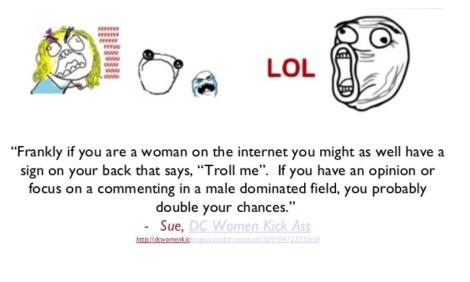
In depth
Tell me what social network you use and I'll tell you what your struggle is
This article, written by Florencia Flores Iborra for GenderIT.org, analyses some current cultural practices on some of the more popular online social networks, and the ways in which the publication policies of these platforms support or restrict the proliferation of certain behaviors relating to respect for the rights of women on the internet.
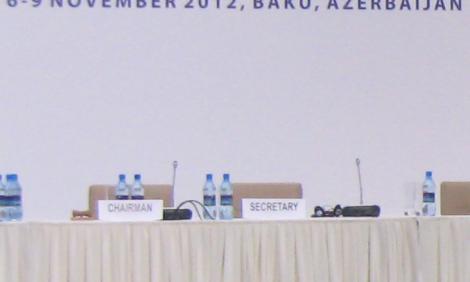
In depth
Women at the IGF: Now we need to mainstream gender
This year's Internet Governance Forum came to a close in Baku, Azerbaijan on 16 November. GenderIT.org contributor Sonia Randhawa spoke to three women about their experiences at the IGF, and whether any progress is being made in terms of the representation of women, and the prominence of women's rights and gender as cross-cutting issues for internet goverance. Jac sm Kee is from Malaysia and…
Publication
Going visible: Women’s rights on the internet
Information and communication technologies (ICTs) create new scenarios, new ways for people to live, and these reflect real-life problems. Women need to assert their rights here with determination and without delay. Women may not have been an active part of policy-making conversations when internet governance started, but the rapid pace of change online means they need to participate now to…
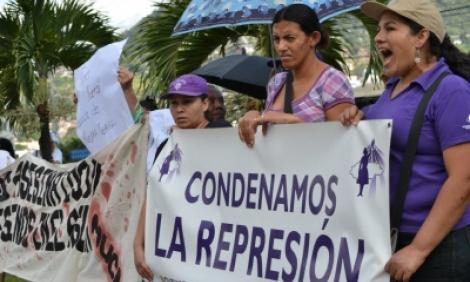
In depth
Women human rights defenders and digital security: Reflections with a Latin American accent
A survey of women human rights defenders (WHRDs) conducted as part of APC’s Connect Your Rights! campaign revealed some interesting practices and perceptions in terms of their use of information and communications technologies in their work. Daysi Flores, a GenderIT.org contributor, analyses the preliminary results of the survey, in light of the realities of Latin America.
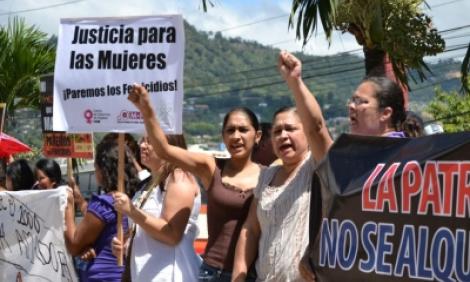
In depth
Who benefits from the silence? Freedom of expression and women human rights defenders in Costa Rica, Honduras and Guatemala
In this article, Daysi Flores, a JASS Mesoamérica representative and GenderIT.org contributor, looks at a number of new cybercrime laws in Costa Rica, Honduras and Guatemala that pose a threat to online security, the right to privacy, and freedom of expression and association for the countries’ citizens in general, but for women human rights defenders in particular.

In depth
Surveying Women Human Rights Defenders: Harassment is the biggest online problem
The Association for Progressive Communications (APC)'s “Connect your rights: Internet rights are human rights” campaign has commissioned one of the first international surveys of the online threats faced by women human rights defenders (WHRDs). Responses came from 13 English-speaking countries, and across Spanish-speaking Latin America, with just over 40 people responding. The survey thus…
Publication
Towards a cybersecurity strategy for global civil society?
This study lays out the elements of a comprehensive security strategy for cyberspace. It aims to address the cybersecurity threats that plague national, personal and social security while protecting and preserving open networks of information and communication. The study was published as part of Global Information Society Watch 2011 that investigated how governments and internet and mobile phone…

In depth
Egypt: Cyber-security as a priority and an integral part of human rights advocacy
GenderIT.org correspondent Mavic Cabrera-Balleza interviews Yara Sallam, Manager of the Women Human Rights Defenders Program at Nazra for Feminist Studies in Egypt, on the challenging reality for women human rights defenders, how they are affected by measures taken by the government in the name of “national security”, and strategies used to address threats to WHRD's cybersecurity.
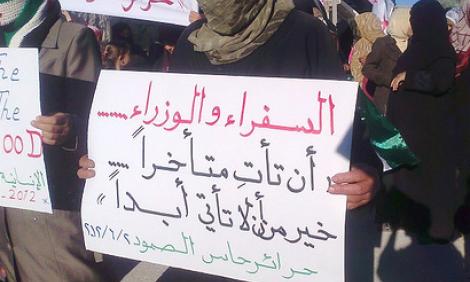
In depth
Collateral damage of the cyberwar in Syria
Jennifer Radloff and Grady Johnson speak to a Syrian activist in exile about the government increasing tendency to securitize the internet and crack down freedom of expression and freedom to privacy on-line. They also talk how limited access to ICTs, self-censorship due to widespread surveillance and reliance on commercial social networks in combination with a general lack of technical knowledge…




